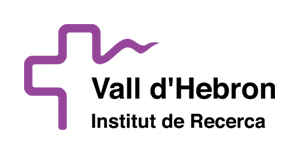Biobank VHIR
Vall d’Hebron Institut de Recerca (VHIR)
Hospital Universitari Vall d’Hebron
Edifici MaternoInfantil, planta 14, lab 10/12
Passeig de la Vall d’Hebron, 119-129
08035 Barcelona
Services
Sample processing
The HUVH Biobank offers research groups the following sample processing services:
- Genomic DNA extraction from blood samples
- RNA extraction from tissue and cell samples
- Serum and plasma isolation
- Automated aliquot of blood, urine, serum, plasma and genomic DNA
- Automated DNA normalization
- Freezing and cryopreservation of tissues
- Isolation of PBMCs (peripheral mononuclear blood cells of the blood).
In addition, the HUVH Biobank has a storage space for samples in -80ºC freezers (custody service).
All Biobank procedures are performed following Standard Working Procedures (PNTs) established by Biobanks (National Biobank Platform, ISBER, and others).
Assignment of samples
The transfer of samples from Biobanks is regulated as established in article 69 of the Biomedical Research Law and article 34 of Royal Decree 1716/2011 on development.
The transfer of samples requires a request from the person responsible for the research, stating the project to be developed and the explicit commitment not to use the requested material for any use other than that indicated therein, and is accompanied by the favorable opinion of the Research Ethics Committee of the center where the project will be developed.
The transfer of samples is evaluated by the External Scientific and Ethical Committees of the HUVH Biobank. These Committees ensure the effective use of biological samples in research projects of excellence
Register of HUVH collections
Biological samples of human origin for use in biomedical research can be stored to carry out a specific project, or to create a collection, or by a biobank (article 22, of Royal Decree 1716/2011, of 18 November).
The samples of specific project, collection and biobank are characterized by the purpose for which they were obtained:
- Specific project samples: The samples are for use in a specific research project as stated in the patient information sheet / informed consent.
- Collection: The samples are for a line of research as stated in the patient information sheet / informed consent.
- Biobank: The samples are for use in any biomedical research as stated in the patient information sheet / informed consent.
Samples of biobanks and collections must be registered in the National Register of Biobanks for Biomedical Research (article 37, of Royal Decree 1716/2011).
Advice
The HUVH Biobank offers the HUVH and VHIR research groups an advisory service on:
- ethical-legal aspects of obtaining and using biological samples of human origin for biomedical research;
- technical / methodological procedures for the correct obtaining, processing, storage and use of biological samples of human origin for biomedical research.
Purpose of the service: to promote the correct collection, processing, storage and use of biological samples of human origin for biomedical research.
Technical procedures
- Peripheral blood plasma extraction procedure
- Peripheral blood serum extraction procedure
- Peripheral blood RNA extraction procedure
- Peripheral blood genomic DNA extraction procedure
- Molecular Medicine Ireland Guidelines for Standardized Biobanking (see pages 15-30 on Standard Procedures for Blood, Saliva and Urine Samples)
2008 Best Practices for Repositories. Collection, Storage, Retrieval and Distribution of Biological Materials for Research. ISBER (see pages 41-45 on Biological Sampling Procedures for Biomedical Research) - A consensus protocol for the standardization of cerebrospinal fluid Collection and biobanking
Collections
- TUMOR BANK
- BANK OF FETAL TISSUES
- IMID-BIOBANC
- PEDIATRIC ENDOCRINOLOGY BANK
- IMMUNOLOGY BANK
- BANK OF CARDIOLOGY
- BANK OF GESTATIONAL PATHOLOGIES
- NEUROLOGICAL TISSUE BANK
- BANK OF DIGESTIVE PATHOLOGIES
- PULMONARY BENCH
- NEPHROLOGY BANK
- SEPSIA BENCH





